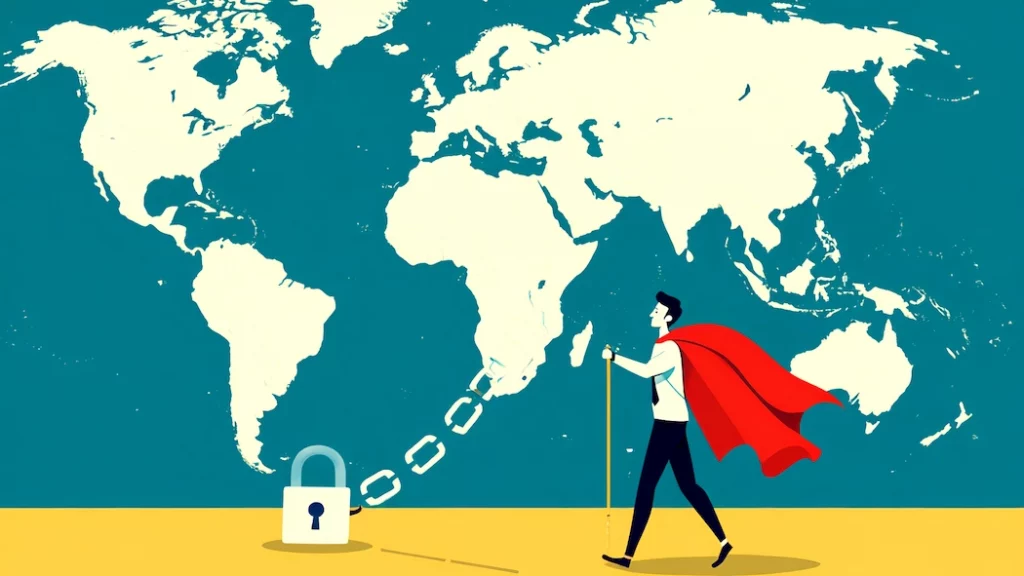The Tunnel
By Gordon Barker
London, August 2025
Thirteen-year-old Max leaned forward in his chair, the glow of his monitor painting shadows across his face. His mum was just in the next room watching Bake Off, but Max had slipped into a different world. One click, and he was gone—tunneled out of Britain.
Not physically, of course. Max had downloaded something his older cousin called a “VPN” — a virtual private network. Just a few taps on his second-hand Android, and suddenly he was in Switzerland. Or Sweden. Or Singapore. Wherever Proton VPN said he was that day.
Ever since the UK’s Online Safety Act had gone into effect in late spring, his digital life had changed. Instagram was demanding his passport. YouTube kept asking him to verify his age before showing half the videos he used to binge. Even Reddit, his haven for gaming mods and obscure subreddits, was nudging him toward some AI moderation bot that scanned posts like a nosy headmaster.
It wasn’t just Max. In school, everyone was talking about it.
“I’m in Iceland today,” grinned Alfie during break.
“I made it into the real Tumblr,” whispered Zoe like she was passing on contraband.
The cat was well and truly out of the bag. VPNs were the new schoolyard status symbol — only this time, it wasn’t about the shoes you wore but whether you could outwit the state.
The Great Surge
On the other side of town, 43-year-old Rebecca Sanders sat at her kitchen table, trying to buy a plane ticket for a surprise trip. But her laptop was acting up. A pop-up warned her: “Content blocked due to Online Safety settings.”
“Content? What content?” she muttered.
She wasn’t trying to watch porn. She wasn’t trying to join a darknet forum. She was just trying to use an obscure French travel site that, for some reason, now fell afoul of the new national web filters.
Frustrated, she called her brother—a cybersecurity consultant.
“Just get a VPN,” he said flatly.
“A what?”
Two hours later, Rebecca had NordVPN installed. The next day, she discovered that she could once again read American news sites without warnings, shop on German Etsy stores, and—most importantly—message her son, who was studying in Denmark, without some AI filter reviewing their video chats.
The Backlash
In Westminster, MPs crowed about the success of the Online Safety Act. Headlines declared victory: “Child Safety Secured,” “Porn Crackdown a Success,” “Britain Leads the Digital Morality Charge.”
But behind the scenes, civil liberties groups were alarmed. Privacy watchdogs reported record VPN sign-ups — ProtonVPN alone recorded an 1,800% surge in the UK. NordVPN’s UK app was now trending higher than TikTok. The Top 10 iOS apps looked less like entertainment and more like a hacker’s starter kit.
At a policy roundtable, a cybersecurity expert raised the obvious.
“You’ve spent millions creating a digital fence… but the entire nation just downloaded a tunnel underneath it.”
Still, ministers remained defiant. One junior official was quoted as saying, “If people are going to circumvent protections, that’s their choice. We did our duty.”
Max’s World
Back in his bedroom, Max wasn’t thinking about government overreach. He just wanted to watch a review of a new horror game — the kind with blood and jump scares and cheesy acting.
But tonight was different. His VPN app showed an alert: “UK Parliament considering VPN restrictions. Use with caution.”
Max frowned. A ban? Could they really do that?
He looked around his room: plastic dinosaur models, a dusty shelf of old books, a football he hadn’t touched in months. The internet wasn’t just entertainment anymore. It was where he hung out. Where he learned. Where he was himself.
He turned off the VPN, just for a second. The web shrunk. Filters reappeared. Prompts asked for ID. Videos blurred behind opaque age gates. The government’s net had tightened.
Max turned it back on. The tunnel reopened.
Postscript
By mid-2025, VPN usage in the UK reached unprecedented levels, with mobile VPN apps like Proton and Nord dominating the App Store. While exact figures vary, industry analysts estimate up to 1 in 4 internet users — and an even higher proportion among teenagers — now use a VPN regularly
The Online Safety Act remained on the books, but its enforcement had become performative. The cat-and-mouse game had entered a new phase.
And underground, in quiet bedrooms and encrypted channels, kids like Max continued to tunnel—not out of rebellion, but simply to be.
